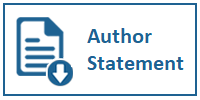Instagram Content Trend During the COVID-19 Pandemic Quarantine in Indonesia
DOI:
https://doi.org/10.31937/ultimacomm.v12i2.1718Abstract
As the fourth largest social media globally, with a percentage of 79%, Instagram experienced a jump in usage of up to 40%, which is used maximally by its users to communicate with family, friends, and colleagues amid a lockdown or lockdown. In addition, Instagram posts have been increasing by up to 15% per day. In line with the increasing use and posts of Instagram per day, it is interesting to see Instagram users' activities through the content uploaded on this platform. The timeframe is from the implementation of regional quarantine in March 2020 until the new normal period in June 2020. Instagram's use is closely related to humans and technology in an imaginary space called the global village. This study uses a descriptive qualitative method by overviewing Instagram content trends during the COVID-19 quarantine period in Indonesia and interviewing six Instagram users whose photos and videos were included in this study. Based on the findings, the authors found various types of content trends on Instagram, such as Dalgona Coffee, Recreate Grunge Makeup, #PassthBrushChallenge, #LathiChallenge, as well as concept photos of Fridgie, Newspaper Corner, and Outside Mirror Selfie. Instagram, as a social media with the power of "we are all connected", form imaginary bonds through several content trends that were born from the form of creativity and innovation.
Keywords: Virtual Ethnography, Global Village, Instagram, COVID-19 Quarantine, Content Trends
Downloads
Downloads
Published
How to Cite
Issue
Section
License
Ultimacomm Jurnal Ilmu Komunikasi allows readers to read, download, copy, distribute, print, search, or link to its articles' full texts and allows readers to use them for any other lawful purpose. The journal allows the author(s) to hold the copyright without restrictions. Finally, the journal allows the author(s) to retain publishing rights without restrictions
1. Authors are allowed to archive their submitted article in an open access repository
2. Authors are allowed to archive the final published article in an open access repository with an acknowledgment of its initial publication in this journal















